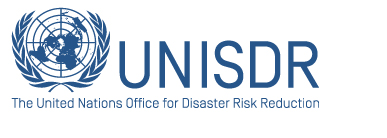Participants will strengthen knowledge of the status of risk management in the country, participate in the analysis of priorities and proposals to address the identified challenges, and learn about successful tools and experiences developed primarily by partners of the DIPECHO Action Plan 2012-2013, in order to create strategic alliances and synergies among different organizations and institutions, towards the construction of the National Integrated Risk Management Report in Nicaragua, which is expected to be published in November this year.
This workshop is organized by the United Nations Office for Disaster Risk Reduction (UNISDR), the Coordination Centre for the Prevention of Natural Disasters in Central America (CEPREDENAC) through the Executive Secretariat of SINAPRED, led by Dr. Guillermo Gonzalez, and organizations participating in the DIPECHO Action Plan 2012-2013 (Disaster Preparedness Programme of the European Commission) ACSUR - the Segovias, ASB/OIKOS/Horizont3000, the Nicaraguan Red Cross, the International Federation of the Red Cross, GVC/GOAL, Oxfam, Plan International and UNICEF, with support of the Directorate-General for Humanitarian Aid and Civil Protection of the European Commission (ECHO).
The 2012-2013 DIPECHO Action Plan for Central America focuses on reducing vulnerability, increasing the local response capacities and contributing to community preparedness to influence the institutions that are able to face future extreme events to avoid disaster situations. It also includes activities such as protecting the livelihoods of disaster-prone communities, the creation of early warning systems, mapping hazardsand creating contingency plans, and coordination between institutions and stakeholders before, during and after an emergency, among others.
ACSUR - The Segovias, ASB/OIKOS/Horizont3000, the Nicaraguan Red Cross, GVC/GOAL and Oxfam have implemented five projects nationwide in Nicaragua, which directly benefit more than 100,000 inhabitants. In addition, there are three regional projects directed by the Plan International-UNICEF partnership, the International Federation of the Red Cross and UNISDR in close coordination with CEPREDENAC.
· Disaster Risk Reduction in Central America
With the growing impact of disasters in recent years in the countries of Central America, the priority is to continue to drive disaster risk reduction as a core element of political life of Central American countries, to ensure the irreversibility and sustainability of the processes underway and the achievements in matters of sustainable development in the countries of the region —that due to their geographic, social, environmental and economic characteristics, are highly exposed to the impact of natural hazards, which have been exacerbated by climate change.
Risk management efforts in the different environments of Central American countries is an enormous challenge that requires the coordinated action of all national and local actors in order to reduce human, economic and environmental losses. This context highlights the participation of UNISDR and CEPREDENAC, interacting with the Central American Governments, in order to achieve the targets adopted at the United Nations General Assembly to implement the Hyogo Framework 2005-2015 and its five priorities for action.
· DIPECHO Programme
Floods, earthquakes, volcanic eruptions, tsunamis, hurricanes and droughts are destroying the lives of millions of people every year and produce incalculable economic losses. Recognizingthe link between disaster risk, climate change adaptation and sustainable development, the European Union and the governments of Central America have therefore placed a growing priority on the issue of disaster risk reduction (DRR).
Contributions by the Directorate-General of Humanitarian Aid and Civil Protection, ECHO, enable concrete actions at the community and municipal level, basing their actions on emergency response in crisis situations and the preparation of authorities and communities in the face of disasters.
The disaster preparedness programme of the Directorate-General of Humanitarian Aid and Civil Protection of the European Commission, known as DIPECHO, seeks to limit the negative impact of disasters through the development and strengthening of response capacities of the authorities and affected populations.
Since 1992, ECHO has provided humanitarian aid to regions in need, demonstrating a concrete expression of the fundamental values of the European Union: solidarity with the most vulnerable populations, respect for human dignity, equality and tolerance.




